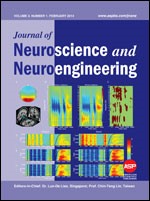Cognitive impairment in amyotrophic lateral sclerosis (ALS) is associated with cortical changes beyond the motor cortex. The overall goal of this project is to determine if task induced hemodynamic changes detected by functional near infrared (fNIR) spectroscopy from the anterior prefrontal cortex (PFC) has discriminant validity across ALS (n = 17) patients and matching healthy (n = 17) controls. The experimental protocol was composed of the King-Devick Test, the Number Interference Test and a Continuous Performance Test targeting a range of cognitive domains including sustained attention and executive function. Results indicate that fNIR measures provided significant differences between ALS and healthy controls in all three tasks providing an additional metric for the assessment of cognitive decline. Although this is a pilot study, given the safe, wearable and real world validity of fNIR, these results may set the foundation for the use of fNIR as a clinical tool in monitoring progression of neurocognitive decline in a simple, less invasive and objective manner than allowed by current imaging technology.
Summary Points:
- Researchers utilized the King-Devick Test as a measure for evaluating the significance of functional near infrared spectroscopy of the brain for patients with ALS.
- K-D Test scores were significantly worse in the ALS group verses controls.
- The K-D Test captures impairment of eye movements, attention, language, and other correlates of suboptimal brain function in ALS.

